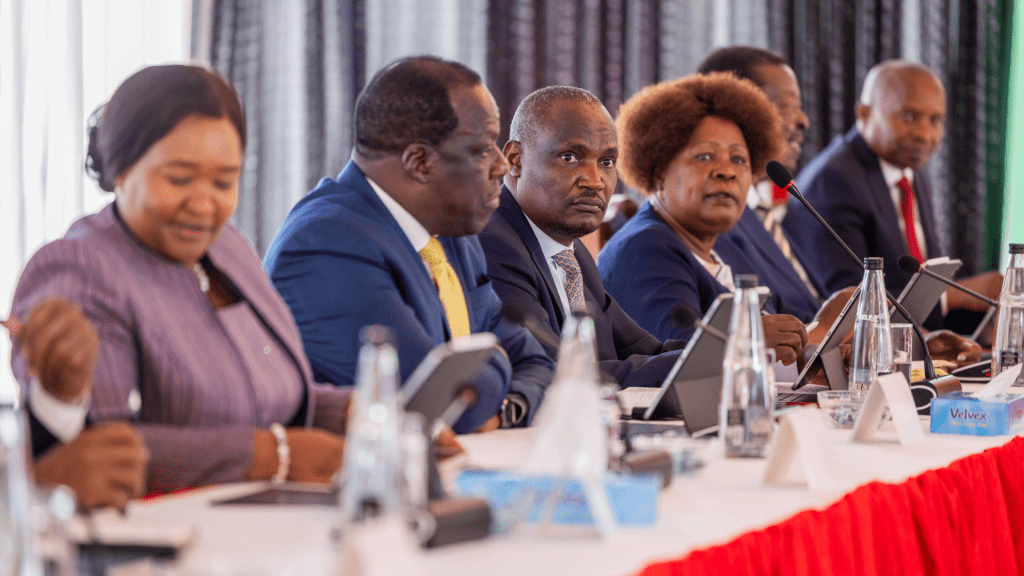The government has approved sweeping reforms at Jomo Kenyatta International Airport (JKIA) aimed at enhancing passenger experience, boosting security efficiency, and reinforcing Kenya’s status as a top aviation hub in Africa.
At a Special Cabinet meeting chaired by President William Ruto at State House, Nairobi, key changes were approved, including the removal of the Electronic Travel Authorization (ETA) requirement for all African citizens. This move is expected to ease intra-African travel and foster economic ties.
Additionally, the duty-free goods threshold for returning Kenyan travelers has been raised from Ksh50,000 to Ksh250,000, allowing citizens to bring in more goods tax-free.

Enhanced Security and Passenger Processing
Security screening at JKIA will be streamlined through risk-based profiling, meaning only flagged baggage will require manual inspection in a dedicated screening room. This change is expected to reduce congestion and minimize unnecessary delays.
To improve passenger clearance, the government will:
- Double the number of immigration booths and staff.
- Introduce E-Gates to eliminate long queues at arrival and departure points.
- Deploy new monitoring technology to enhance accountability among airport staff.
- Implement mandatory uniforms with visible name tags for all employees and retail concessionaires.
Infrastructure Upgrades
The Cabinet also approved a series of infrastructure improvements at JKIA, including:
- Modernized baggage handling systems to prevent delays and mishandling.
- Better drainage systems and improved access roads to prevent disruptions during heavy rains.
- Covered walkways for passenger convenience.
- Enhanced air conditioning and clearer signage for improved navigation.
- Stricter regulation of meet-and-greet services, ensuring only licensed facilitators operate within the airport.
These changes, which take effect immediately, aim to make JKIA more efficient, secure, and passenger-friendly while aligning it with global aviation standards.
Cabinet Approves Ksh4.2 Trillion Budget for 2025/26
Beyond the airport reforms, the Cabinet also approved the 2025 Budget Policy Statement (BPS), setting Kenya’s budget at Ksh4.2 trillion for the next financial year. The budget breakdown includes:
- Ksh3.09 trillion for recurrent expenditure.
- Ksh725.1 billion for development projects.
- Ksh436.7 billion for county allocations.
- Ksh5 billion for the Contingency Fund.
Additionally, county governments will receive Ksh474.87 billion, with extra funding sourced from national revenues and development partners.
Economic and Fiscal Strategy
The government has outlined six key priorities in its economic plan for the next fiscal year:
- Reducing the cost of living.
- Eradicating hunger.
- Creating jobs.
- Expanding the tax base.
- Strengthening foreign exchange reserves.
- Promoting inclusive economic growth.
To maintain fiscal stability, authorities plan to implement tax reforms, close revenue loopholes, and enhance public-private partnerships (PPPs) to attract private-sector investment.
Kenya Strengthens Global Ties
The Cabinet also approved a series of international agreements aimed at bolstering Kenya’s global influence, including:
- Host country agreements with organizations such as Save the Children, Oxfam International, and Shelter Afrique Development Bank.
- A tax agreement with Singapore to prevent double taxation.
- Kenya’s hosting of the International Air Transport Association (IATA), further cementing its role as a global aviation hub.
With these sweeping reforms and economic policies, Kenya is positioning itself as a regional leader in aviation, trade, and economic growth.





![SHA Suspends Dozens of Health Facilities Over Alleged Fraud [LIST]](https://citymirror.ke/wp-content/uploads/2024/12/image-14-218x150.png)

